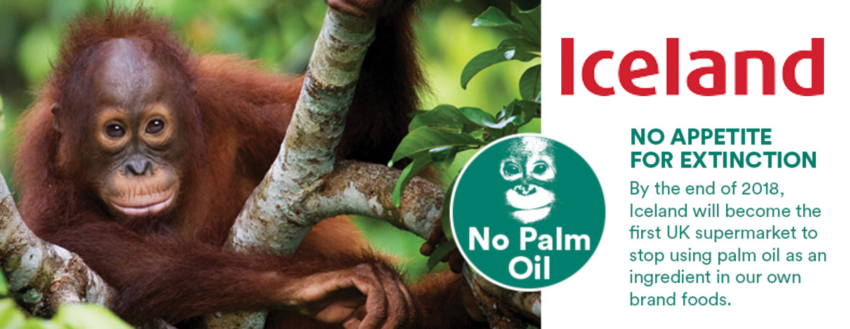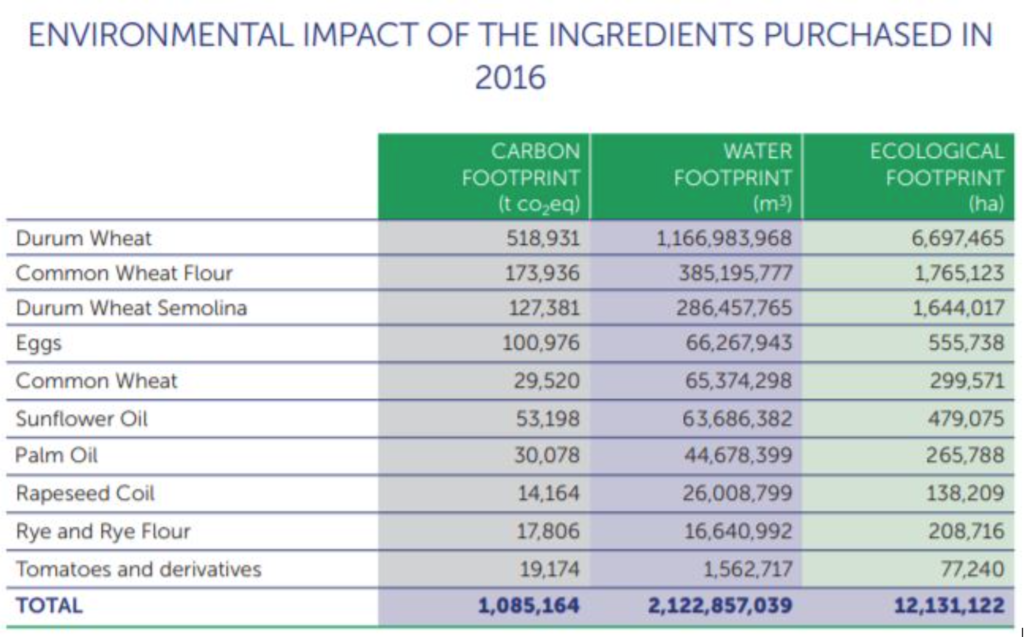
UK supermarket chain Iceland has decided to contribute to the destruction of the planet by increasing deforestation.
Removing palm oil from its own range of products will cause greater deforestation and increase pollution and poverty. What often lie behind these corporate choices are business interests and the inability of managers to cope with complex issues. Yet again Corporate Social Responsibility is employed to mislead stakeholders and make problems worse instead of solving them.
Why has Iceland decided to abandon palm oil? According to the company, it is to contribute to the reduction of deforestation in Asia. We ought to be grateful to Iceland. Of course, we aren’t. We need to be wary of companies such as this.
If this is Iceland’s policy, then it shouldn’t sell anything any more. Why? Because the primary cause of global deforestation is not palm oil.
So why doesn’t Iceland do away with meat instead? Intensive cattle farms are the major cause of global deforestation.
It should also stop selling butter, and products containing rapeseed, sunflower and soy bean oil. It’s not a coincidence that the three main lobbying groups, that fund the campaign against palm oil, invest lavish amounts of money in the environmental NGOs that inspect every millimetre of the Asian forest, but turn a blind eye to what is happening in Europe.
According to the Barilla report on sustainability, for example – see the table below – palm oil is the most sustainable crop. And this comes from Barilla –an Italian major food company–, that also abandoned palm oil in order to satisfy its consumers.
Who is it that tells consumers that palm oil is the cause of deforestation? The NGOs, supported by oil and fat producers that are hostile to palm oil. What a conflict of interests!
Here are some productivity statistics:
| Palm oil | Soy bean oil | Rapeseed oil | |
| Tonnes of oil per hectare | 3.62 | 0.50 | 0.79 |
And now that Iceland and other chain stores are abandoning palm oil, what will happen? Let’s conjure up a scenario:
– Iceland and partners will have a clear conscience
– Iceland’s customers will think they are buying healthy products and being socially responsible
– Production of palm oil in Asia will cease
– Many people in Asia will lose their jobs
– Palm oil plantations will close down
– But the forest won’t return
– Local populations will grow other, less sustainable, plantations
– Deforestation will continue, increase and worsen
That’s when Iceland will turn its attention to something else, in order to wipe its conscience clean again, and continue to deceive its customers. Iceland consumers will see through this deception, but then they’ll forget about it, as we do here in Europe, distracted by something else.
Does Iceland have an alternative? Yes, it does. It’s called sustainable palm oil. In recent years deforestation in palm oil producing countries has fallen sharply, thanks to the producer companies, the governments and the growing responsibility of hundreds of thousands of local growers. Has deforestation fallen in Europe?
So, many companies have opted for sustainable palm oil, in the knowledge that at the moment palm oil is the best form of farming. It’s not top of the list, but it is the best at the moment. Take note. Science and the experimental method have to face up to reality.
Companies like Iceland and the NGOs to which companies entrust their policies of responsibility, are selling unfulfillable dreams, deceiving consumers. They do it for commercial interests. The media keep track of them stupidly, thinking they are reporting on a perfect world.
Europe has chosen to pursue this emotional path, just to ease its conscience. Europe denies the science just to hide away the real problems. Europe prefers to respond to its lobby groups by hiding away behind political correctness.
Iceland has chosen to devastate the world, pursuing the lies of the NGOs. Not us. We ask for there to be collaboration with palm oil producing countries in order to achieve full sustainability, create jobs, prosper, create a more open and better world, day after day, one step at a time.

